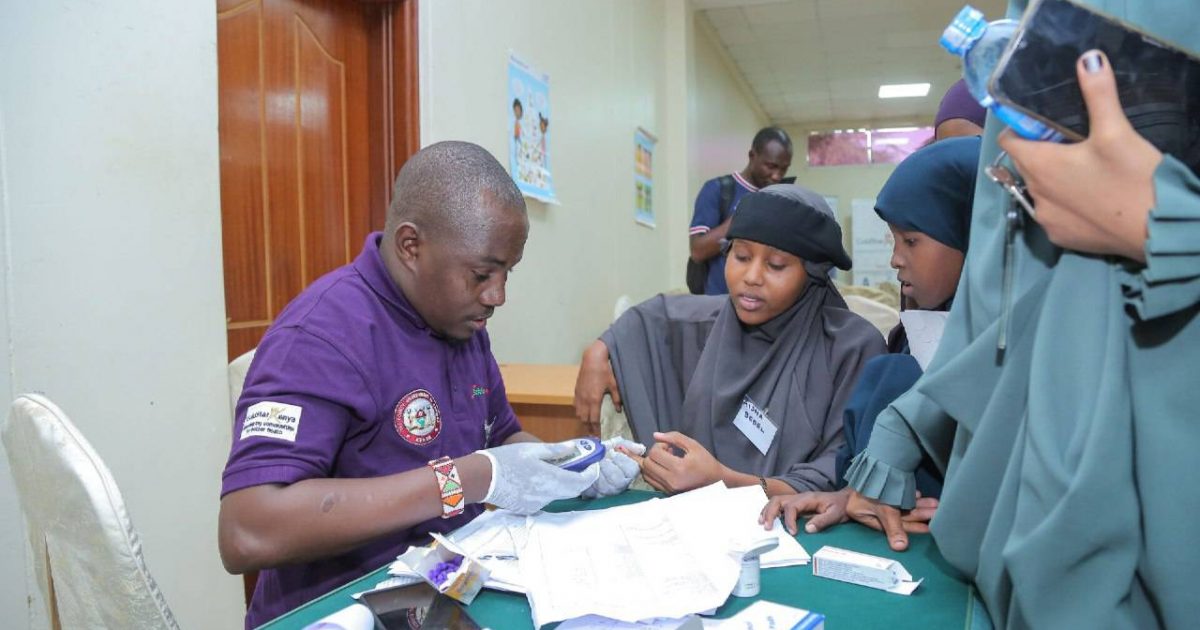Increasing cases of type one diabetes in children is worrying health officials in Garissa County who are now calling for more partners to join in the fight against disease and ensure affected children get the required support.
In 2019, Safaricom Foundation partnered with National and Garissa County governments, Goldstar and Nomadic Girl Initiative organization to set up a three-year diabetic programme to enhance early detection of type one diabetes and put up comprehensive care for the patients.
Safaricom Foundation’s Trustee Barrack Odero said that so far Sh 43.5 million has been spent to set up a diabetes centre at Garissa Referral Hospital, buy diabetes equipment, insulin doses and cooler packages.
Odero says that so far they have 435 children at their care who are receiving training on how to check their sugar levels and inject themselves with provided insulin.
“About half a million Kenyans may have type one diabetes but 60 per cent of them have never been tested. Out of the remaining 40 per cent, half of them may have tested but do not have access to the required medication,” Odero said.
“This is why we have been here to explore some of the ways and means to bridge the gap in Garissa,” he added.
Garissa County Health CEC Roble Nunow says that the increasing cases in the county are as a result of lack of balanced diet.
“People in this region depend on livestock. We have the normal foods like rice and beans with no alternative diets,” Nunow said
Nunow said that while the program is coming to an end, the county government is launching Universal Health Care and NHIF cover for the affected children so that they may continue receiving their medication free of charge.
“We have set structures to sustain these programs. We have trained community health care providers, Children and their parents so that they may be able to know how to manage themselves,” Nunow said.
“The reason we are training these children on how to inject the insulin to themselves is because at some point, they will go to boarding schools and they need to be able to take care of their conditions,” he added.
The CEC noted that having type one diabetes is not the end of life and the children can live a full life if they receive their insulin doses and have a proper diet.
Dr. Catherine Karekezi who is also a director at Kenya Diabetes Management and Information centre says that type one diabetes patients cannot survive without insulin.
“Insulin is a key drug for these children. Without it they could die and no child should lose his or her life because of lack of insulin injection,” Karekezi says.
“These children need daily insulin injections and for some cases double injections from two different types of insulin, one at night and the other during the day,” she adds.
Dr. Kakerezi notes that without insulin, the sugar in the blood circulation damages body organs; eye capillaries, kidneys and prevents wounds from healing.
She however says that there are programs for children with type one diabetes, where they all meet in camps, play together and understand that there are others too facing the same conditions.
Some of the counties with higher cases of type one diabetes include Kitui, Marsabit, Homa Bay and Lamu.
By Erick Kyalo



